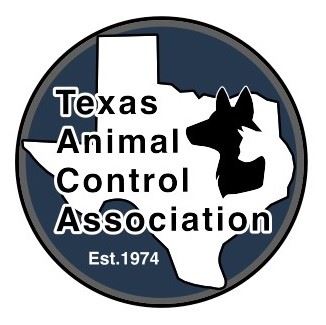| TACA's 2025 Legislative Priorities |
ACOs as First Responders in Texas Update 02/25/25 Also, HB 2041 by Rep. Ken King, who represents Andrews, Bailey, Briscoe, Castro, Childress, Cochran, Collingsworth, Donley, Gaines, Gray, Hale, Hemphill, Hockley, Lamb, Roberts, Swisher, Wheeler, and Yoakum Counties, and SB 305 by Sen. Charles Perry, who represents Baylor, Childress, Coleman, Collingsworth, Concho, Cottle, Crosby, Dickens, Donley, Fisher, Floyd, Foard, Garza, Gray, Hale, Hardeman, Haskell, Hockley, Jones, Kent, King, Knox, Lamb, Lubbock, Lynn, Mason, McCulloch, Menard, Mills, Motley, Nolan, Runnels, San Saba, Stonewall, Taylor, Terry, Throckmorton, Tom Green, Wheeler, Wilbarger, and parts of Wichita Counties, have both been filed and will add "a vehicle operated by an animal control officer" to Sec. 545.157(a) of the state's transportation code which is commonly referred to as the slow down or move over law. These bills will require drivers to move out of the closest lane or slow down to 20mph below the posted speed limit when we're working on the side of the road. Here's the actions we need every TACA Member to take right now, but it is especially important if you live or work in any of the counties listed above for each elected official:
If you would rather email than call, you can write your own thoughts or use the template below to reach out to these legislators. No one else is going to get any of these bills passed for us, we have to do the work to be successful!!!
Original Message
Why Texas Animal Control Officers should be considered First Responders Texas employs more Animal Control Officers (ACOs) than any other state, with approximately 1,350 officers. Historically, ACOs have been on the frontline of public safety by protecting communities from loose animals and addressing public health concerns, such as preventing the spread of rabies and other zoonotic diseases. This early role has now dramatically been expanded to include providing community support and outreach, investigating animal cruelty and neglect, saving animals who are in immediate danger, rehoming unclaimed pets, promoting responsible pet ownership, and enforcing nuisance abatement ordinances. ACOs work alongside other Texas first responders such as law enforcement, EMTs, and firefighters almost every day, as well as during weather emergencies, natural disasters, mass evacuations, and other catastrophic events. Despite this, ACOs are not yet recognized as first responders. Simultaneously, ACOs’ jobs are getting more and more dangerous. On May 10, 2021, a Concho County man shot and killed two deputies who were assisting with the capture of two dogs that had bitten someone. On October 13, 2022, TACA Member Crystal Goforth and her fellow ACO Jon Corder were responding to a service call on a highway and were killed by an inattentive driver in Levelland, Texas. ACOs all over the state are threatened and assaulted almost on a daily basis by pet owners, animal extremists, and others who don't understand that those who do this job do it because they care and want to make a difference for the people and animals in their communities. First responders are defined as “individuals who in the early stages of an incident are responsible for the protection and preservation of life, property, evidence, and the environment.” Any incident that involves an animal will most likely end up being handled by an ACO in some way. Every natural disaster and evacuation order that impacts people will also affect their animals and ACOs are required to be available 24/7 for emergency response. During Hurricane Katrina, many people lost their lives because they refused to evacuate without their pets. In response to that, the federal government passed the Pets Evacuation and Transportation Standards (PETS) Act that requires state and local jurisdictions to include animals in their emergency response planning. In these situations, ACOs must be there to help protect and preserve the lives of the owners and their "property" since that's what animals are legally considered. ACOs are first in line to investigate animal cruelty, seize abused pets, and issue citations and they protect and preserve the "evidence" (animals) in these cases. These reasons are why ACOs absolutely meet the definition of first responders and should be designated as such. Benefits to including ACOs as First Responders There are many benefits to designating ACOs as first responders:
Summary The very core of a modern ACO’s job is deeply rooted in community engagement, public health and safety, and the welfare of animals. ACOs respond to accidents and disasters involving domestic pets, wildlife, livestock, and even dangerous exotic animals. They are frequently involved in search and seizure warrants, often have to assist when arrest warrants are served, and are usually the first line of help for abused animals. They respond to dangerous dog calls, situations where people are bitten by animals, and help prevent the spread of rabies. They do all of this while frequently being exposed to weather extremes, aggressive animals, zoonotic diseases, and verbal and sometimes physical abuse from people they interact with, all of which can leave permanent physical and mental scars. ACOs provide valuable services to their communities as well as crucial support to other first responders in situations when their professional expertise is needed. Unfortunately, they do not receive nearly as much acknowledgement or support because they are not recognized as first responders. Communities and local agencies should view and support their ACOs at the same level as other first responders and should provide the ongoing training, equipment, and resources necessary for Animal Control Officers working on the frontlines of their communities. Legally designating them as first responders is the first step in this process. |
